FEATURE: Finding a Fellow Small Business Owner & Runner in Emily Winter, Co-Founder of The Weaving Mill in Chicago
Author: Liam Gayter
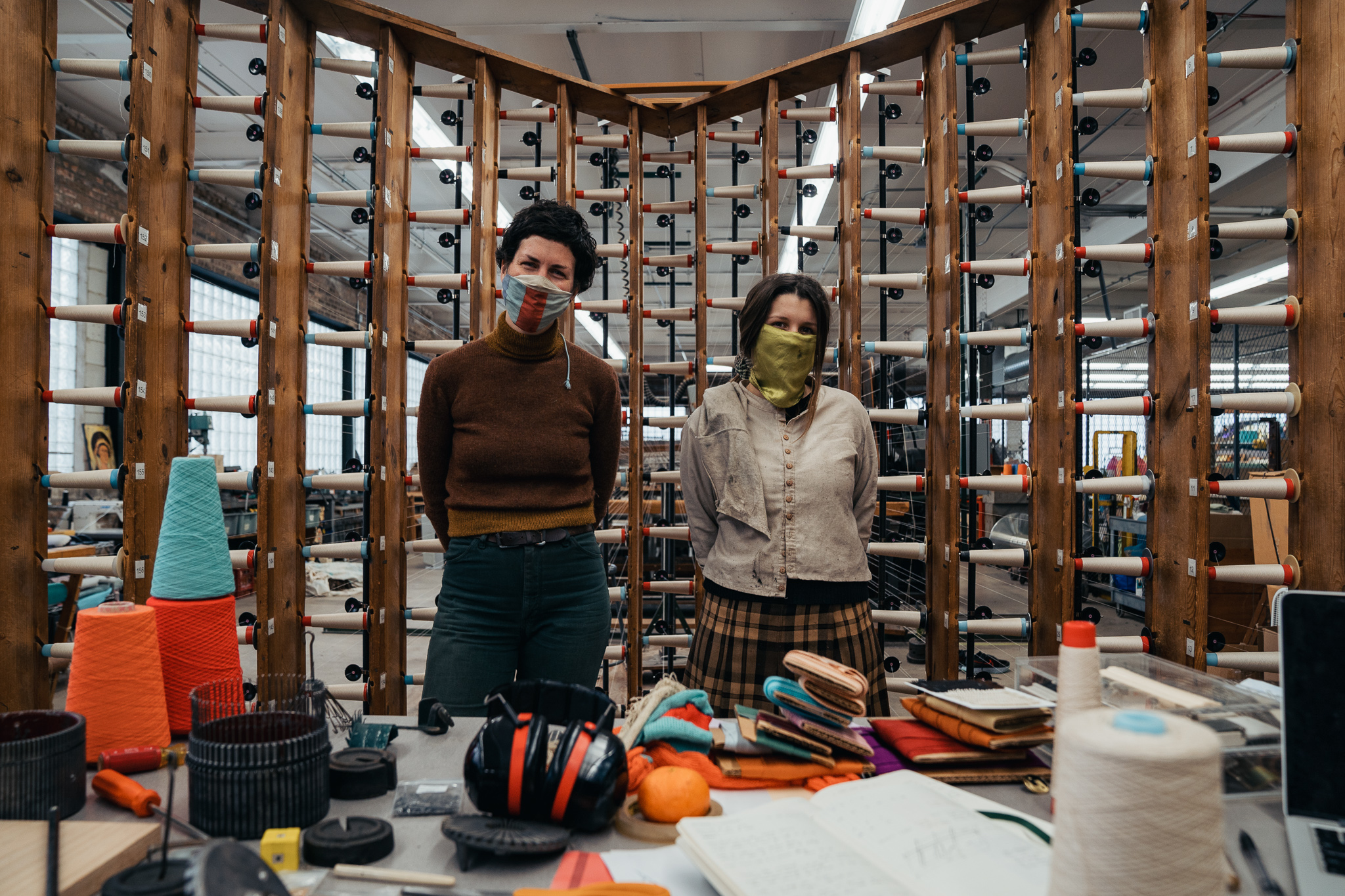
There is a place in Chicago’s western neighborhood of Humboldt Park, where artists seamlessly interweave their personal experiences to not only create one-of-a-kind clothing and everyday items but also to interact, educate, and give back to the community in which they are grounded.
As a locally owned and operated small business in Chicago, our employees also tend to seek out the same when searching for products they need in their everyday lives. When searching for a rug for his living room, Max, Fleet Feet Chicago's digital media manager stumbled upon The Weaving Mill, and in his state of curiosity, he found a fellow runner in Emily Winter, co-founder of the industrial weaving studio orchestrated by local artists.
Run by Emily and Kendall Schauder, The Weaving Mill operates at night with a focus on creating utilitarian goods and eliminating textile waste. During the day the crew provides textile education workshops for adults with developmental disabilities in partnership with Envision Unlimited.
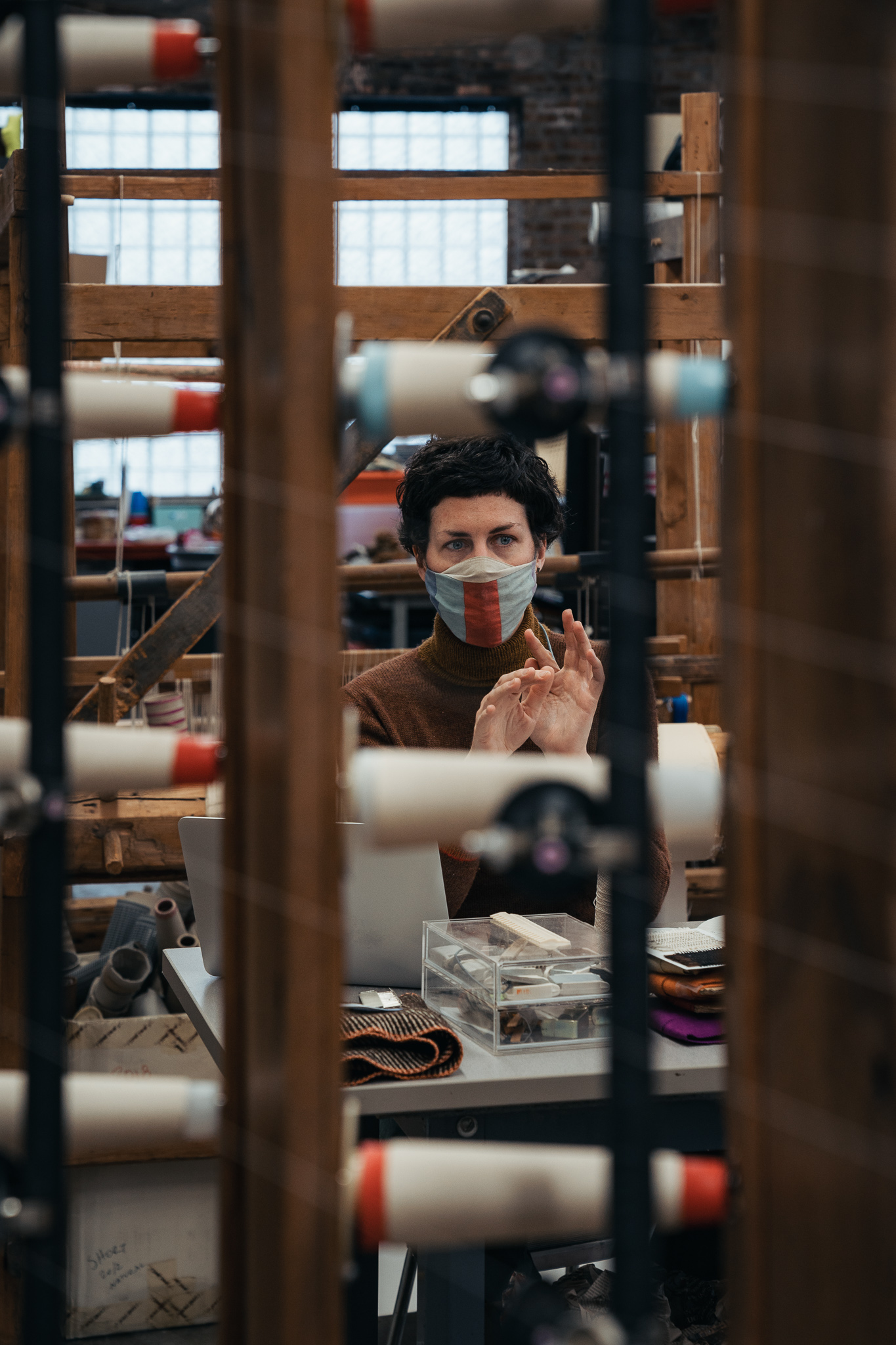 |
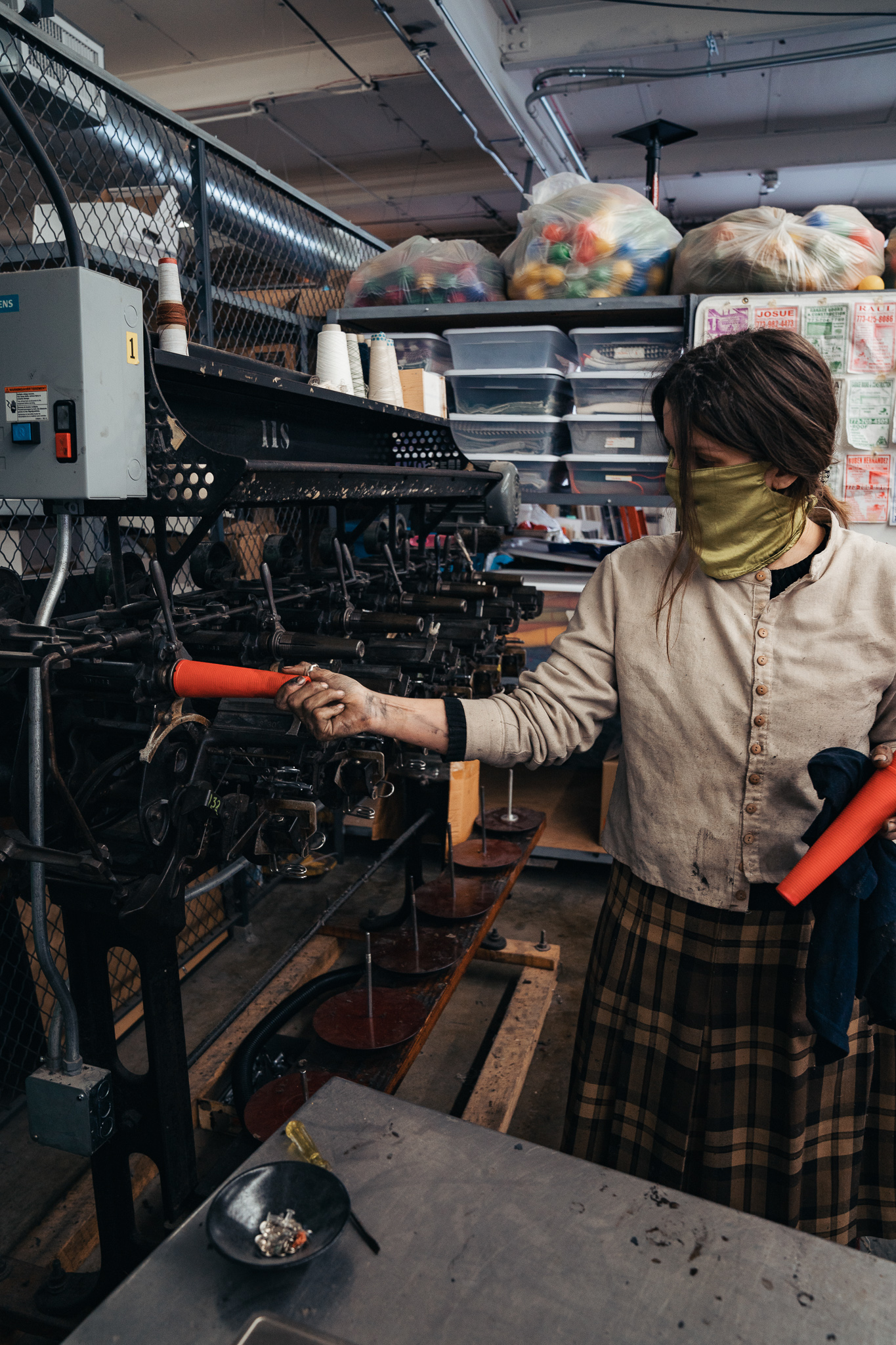 |
We sat down with Emily to talk about The Weaving Mill, how she uses running to clear her head, what their partnership with Envision Unlimited can provide to their community, and how one makes weaving into a career.
“I started weaving when I finished college. I had been curious about it for a long time. It always seemed kind of inaccessible, like, ‘How do you even learn to weave?’” Said Emily.
Emily sought out weaving classes through a weaving school in Chicago. Before long she was a teaching artist at the Westtown Center introducing hand weaving to the existing art program. After a couple of years, the young artist decided to get her Masters of Fine Arts in textiles.
“When I finished my masters, I decided to come back to Chicago. The weaving company that was running this space at that time was winding down. So basically right when I finished grad school I moved back in with a classmate and former collaborator of mine and we started The Weaving Mill,” Emily said.
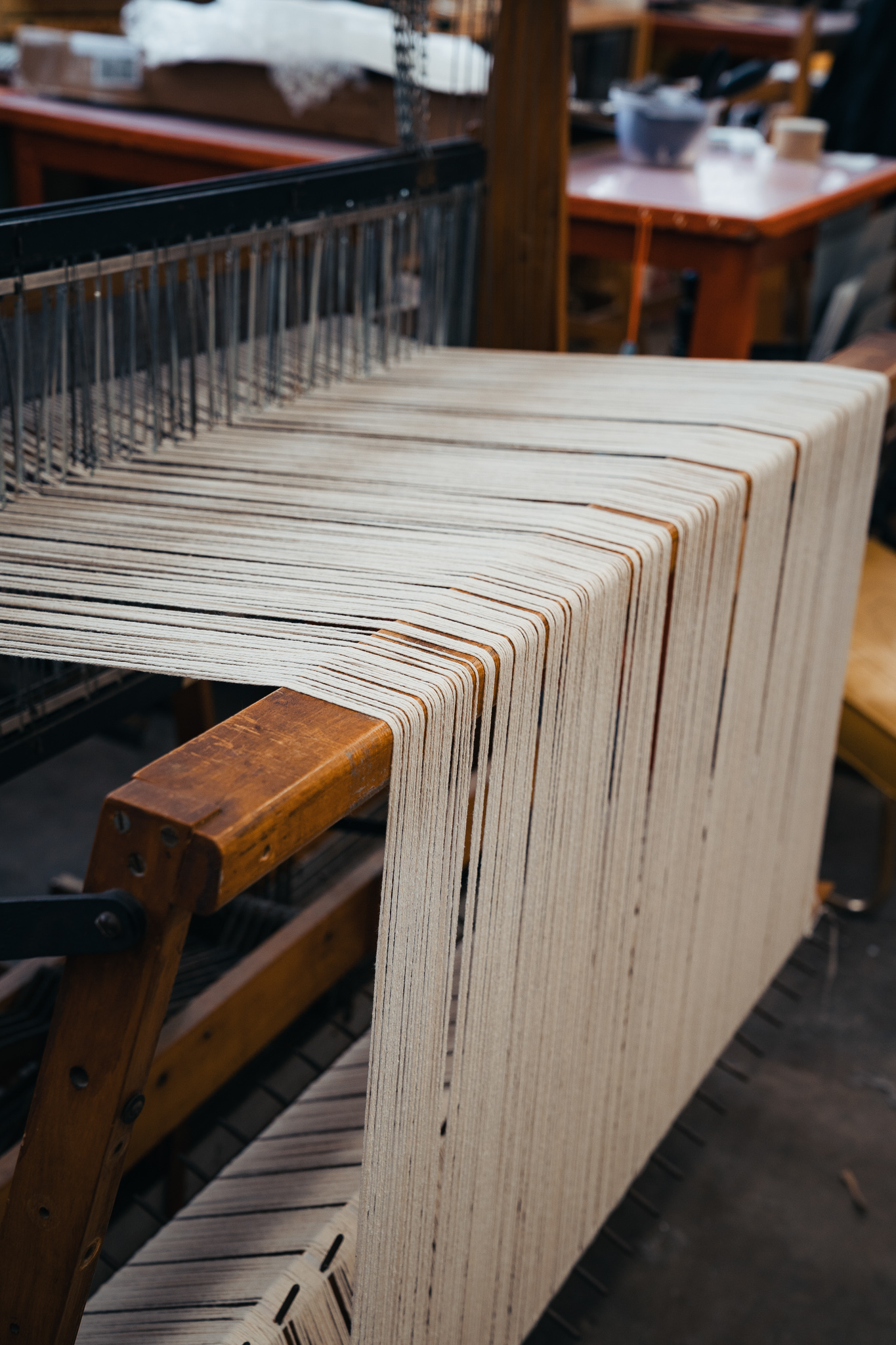 |
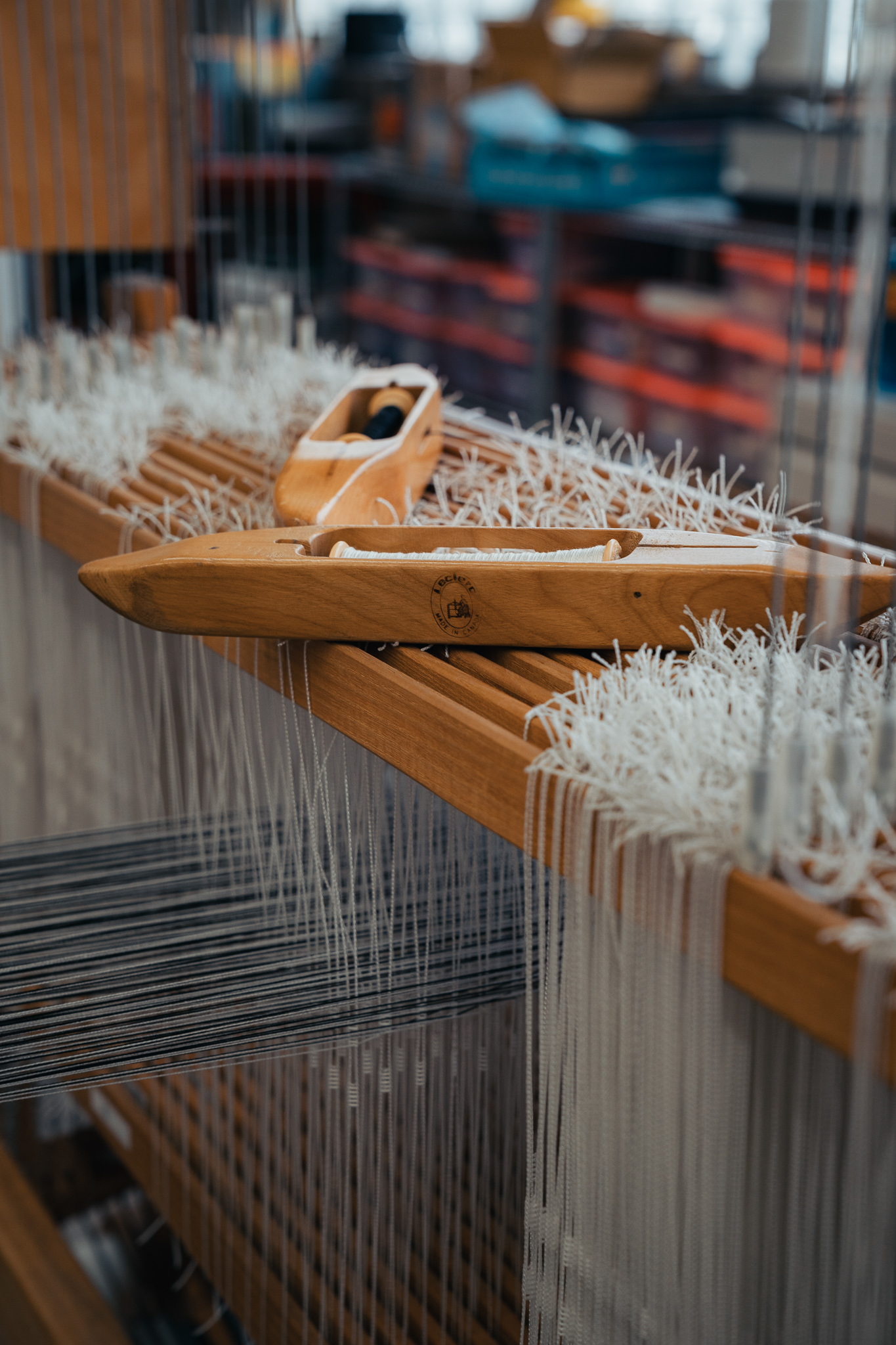 |
What was once just curiosity has now become expertise. Emily has grown as an artist and a weaver. She cognitively conceives an idea and weaves it to fruition.
“What do we have the capacity to do here? Make fabric and make things out of it. I take a lot of joy out of having functional and specific objects,” Emily said. “For example, I like to make yogurt, and to make yogurt you have to incubate it. So I always used to just wrap it in this weird blanket. And then I was like, ‘Oh, we could make a yogurt blanket!’ And so we started making them.”
The Weaving Mill sells everything from backpacks to rugs, shirts, and shorts to reusable coffee filters and many items in between. But the mills' intentions lie beyond selling expert woven artifacts. The organization works with Envision Unlimited, a not-for-profit organization that provides adults with developmental disabilities a space to create and explore.
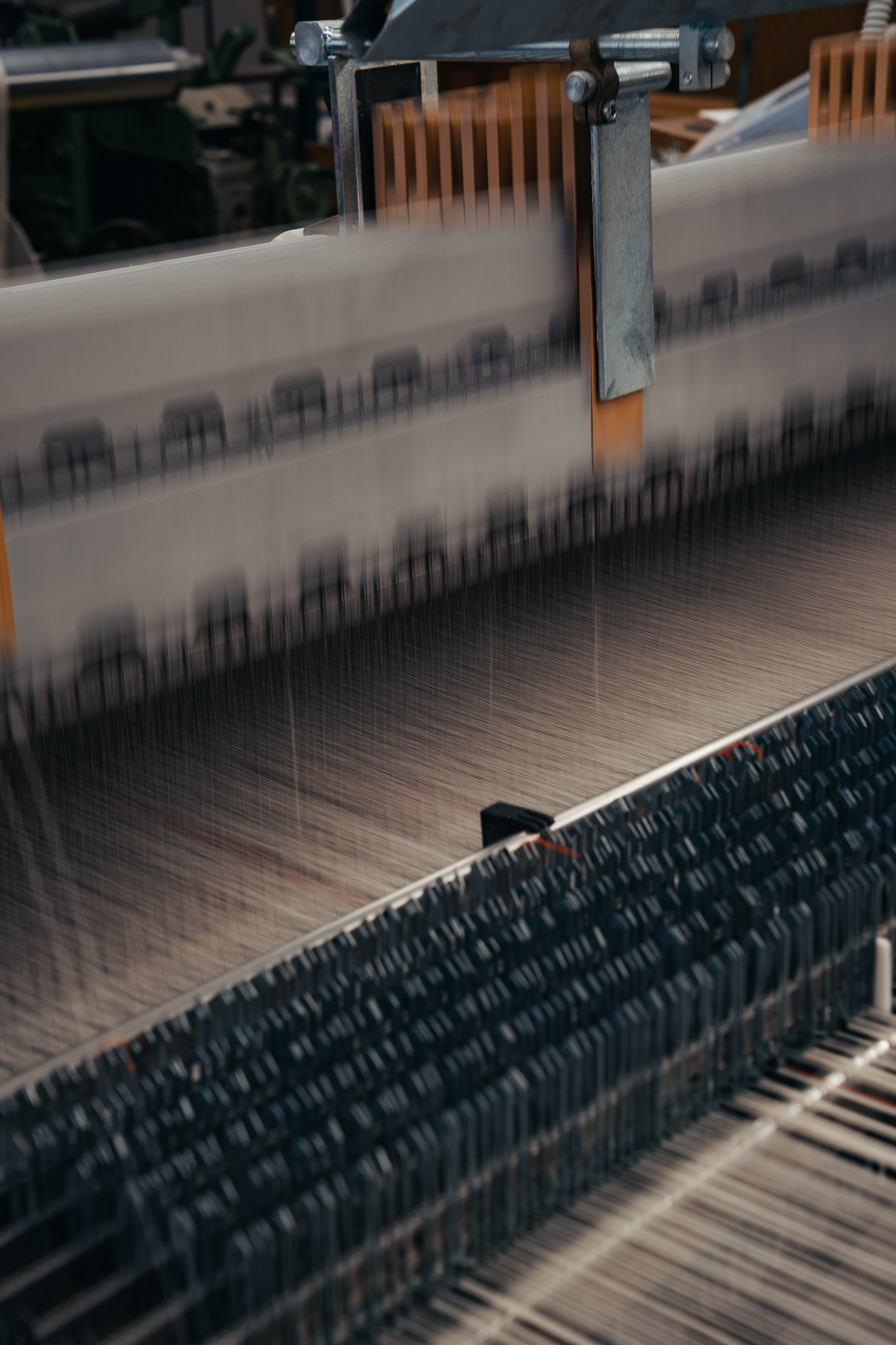 |
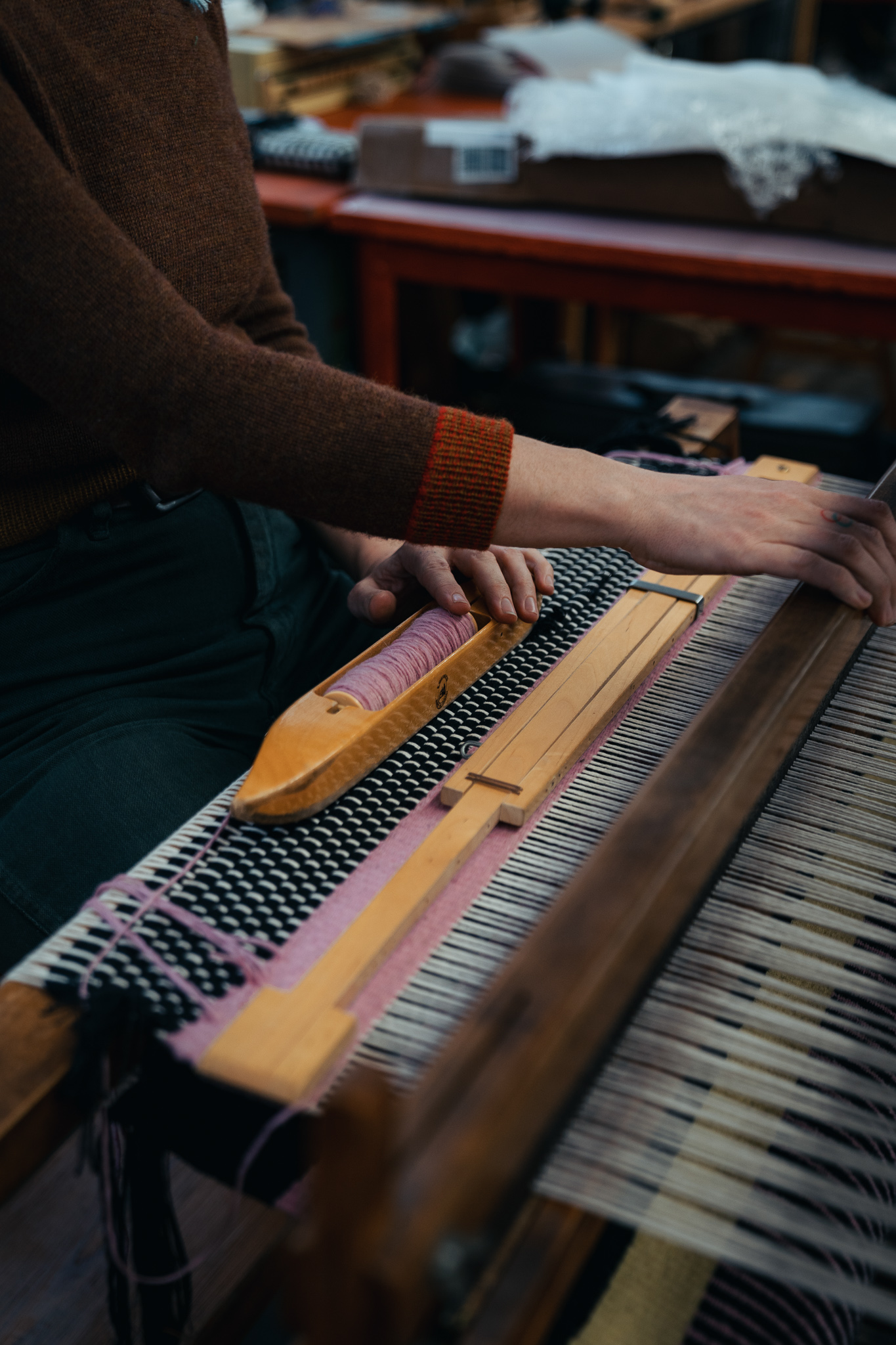 |
For over 70 years, Envision has been an advocate for the disability community. They provide day programs, community living, and different opportunities to explore, create and learn. The two organizations coexist in a way that allows both to accomplish their vocations in a project known as Westtown Education for Textiles (W.E.F.T.).
“We run it as an open studio environment, people are working on shared works, meaning you have a collected design aesthetic,” said Emily. “It's not like somebody comes in and says, I'm weaving a scarf. We’re all kind of working collectively on making tote bags or something of the sort.”
The Weaving Mill’s visiting artists and Envision’s artists regularly collaborate on projects, creating an impactful experience for all involved. It allows Envision’s artists to learn unique technical and valuable everyday skills while making personal connections with local Chicago artists.
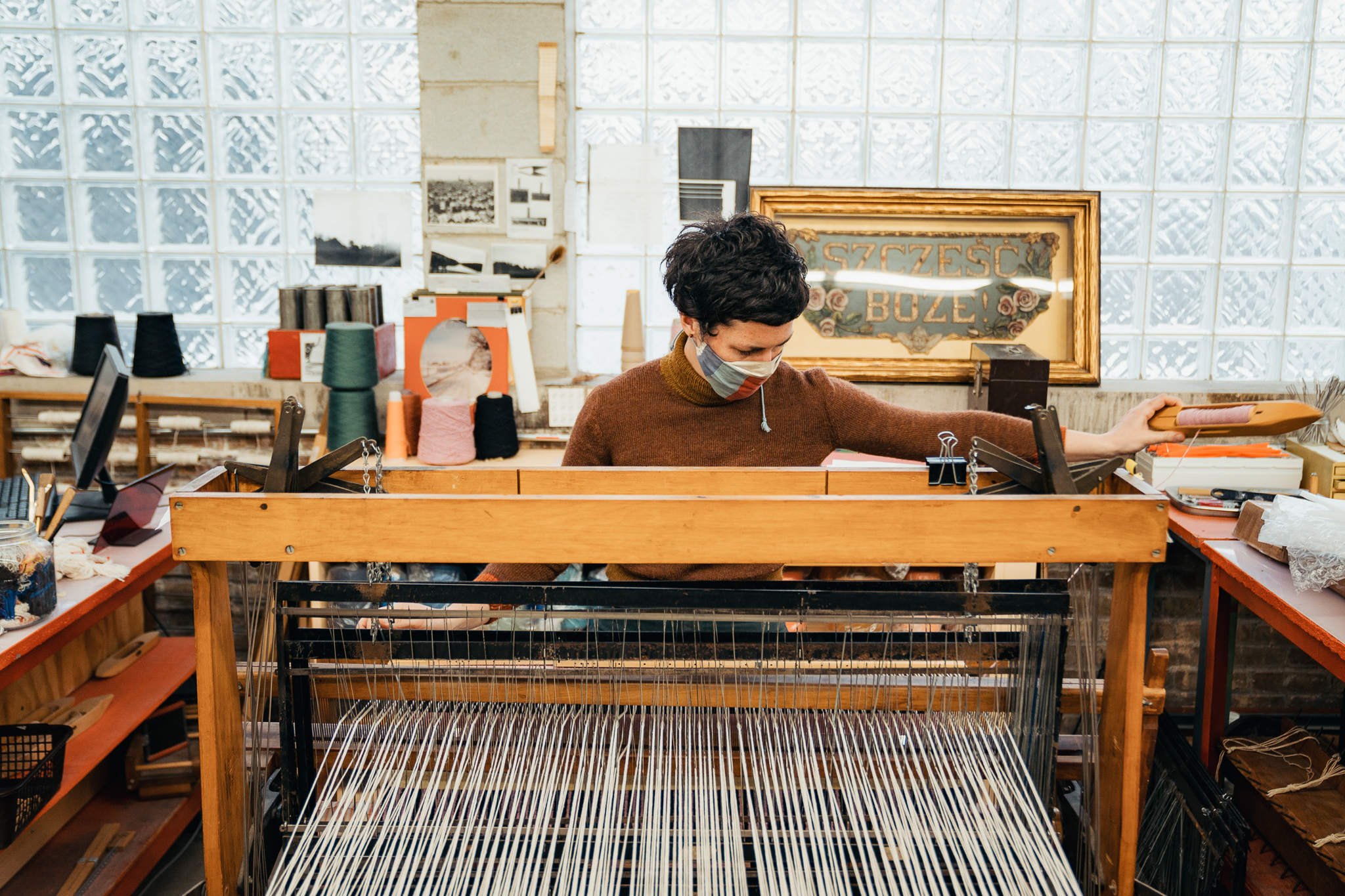
“You learn how to weave, but you also learn how to problem solve and how to ask questions and how to be independent,” said Emily. “We try to help people whenever they need it, but we also try to encourage self-reliance and or asking others for help, not having the teacher-student hierarchy thing, but having more level classroom experience.”
When not working in the mill Emily can sometimes be found counting the blocks as she runs through her neighborhood.
“I find it's fun to sort of game-ify it. I’ll set goals for myself, like three miles or something,” said Emily. “So I'm like, ‘Okay, that's 24 blocks,’ And so as I'm running, I'll be counting my routes, like, ‘Okay, I've gone from North to Division, that's four.’ It's just like this sort of puzzle.”
Running provides a time and space for Emily to clear her mind. Block after block, stride after stride, her mind is focused on the task at hand.
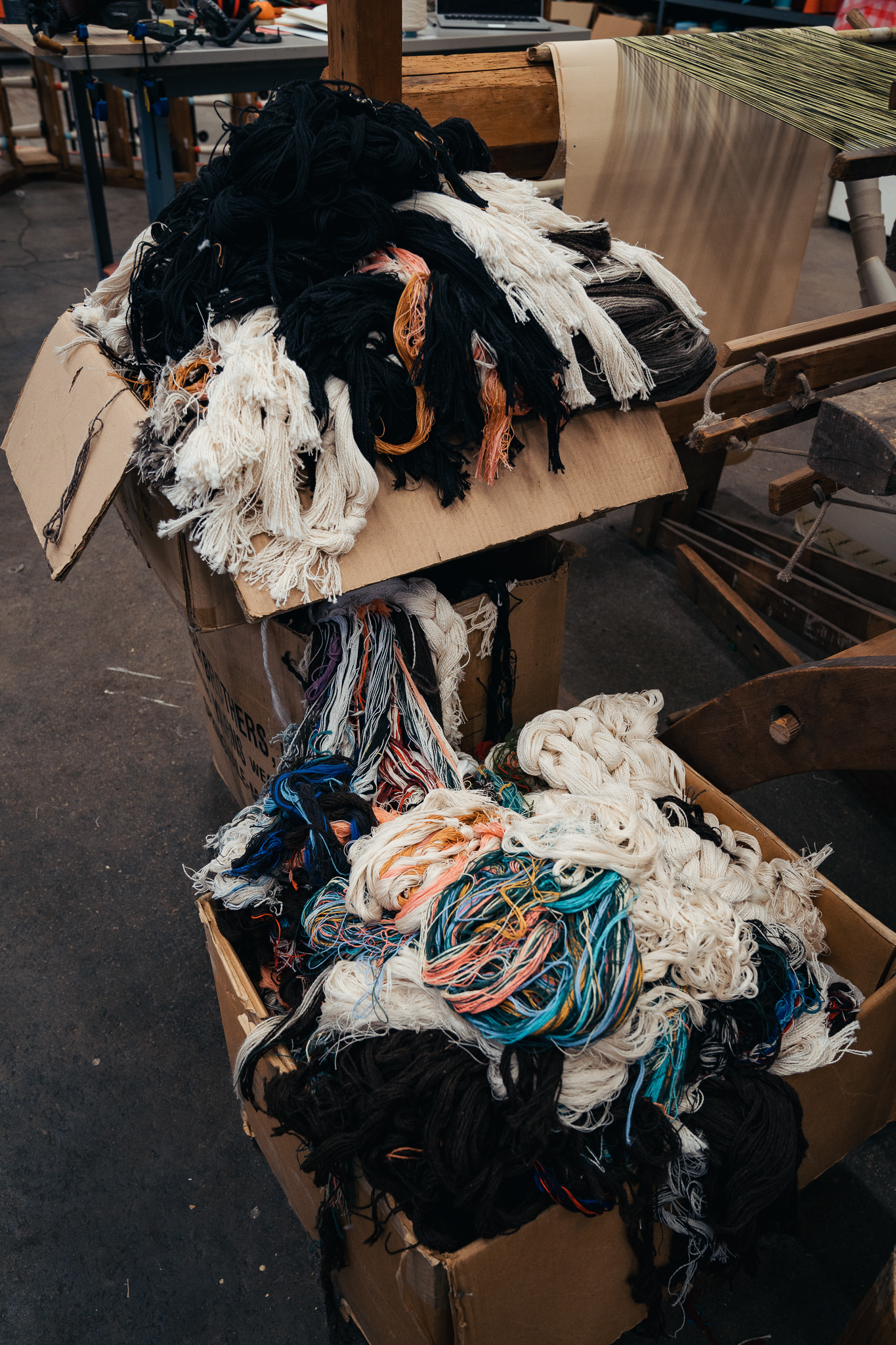 |
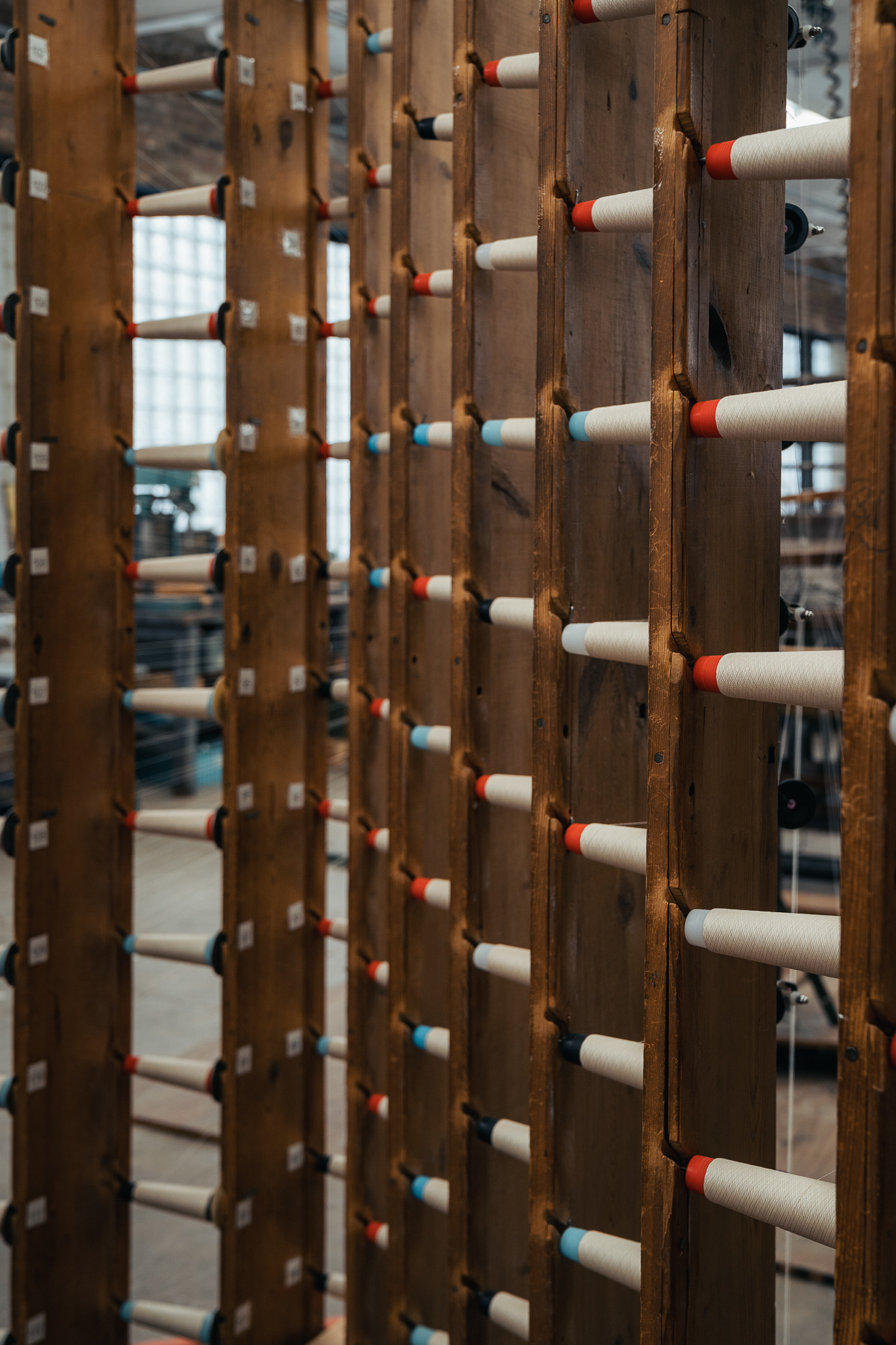 |
“I really enjoy running, I don't bring my phone and it's just quiet. It's nice to not be thinking about anything else, to not have your phone, it's nice to be outside,” said Emily. “You can't do anything else while you're running. I like that as opposed to other forms of exercise, like, you can just do it whenever you want and you can do it however long you want.”
The sense of community, the dedication, and the heart found within the walls of the Weaving Mill parallels the vibrant running communities within Chicago. Artists and runners alike share the same satisfaction whether it be finishing a strenuous art project or crossing the line of your first 5K. Everyone gets their endorphins from different places. For some it's running, for others, it is weaving. When things get rolling at the mill Emily says she experiences the ‘weavers high’.
“Sometimes I'm just so overjoyed about the weaving mill. When things are really, really cooking here, it feels alive,” said Emily.
Connect With Us
See the latest from Fleet Feet Chicago